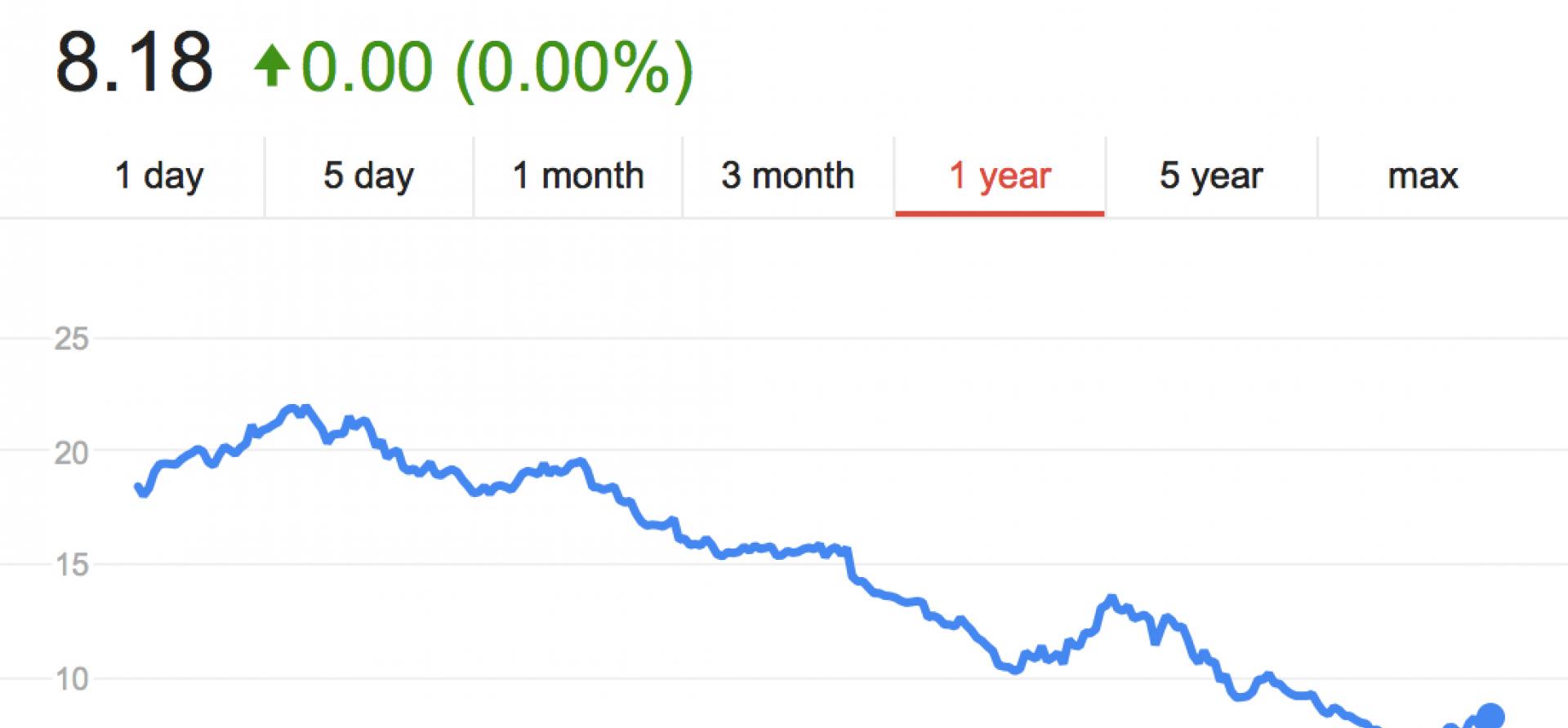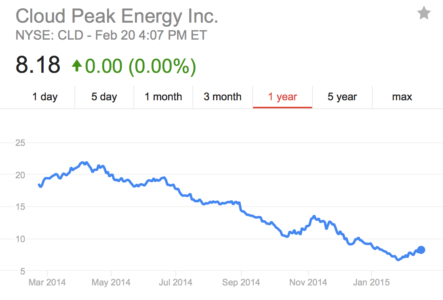Cloud Peak Energy: In the Black, but Precariously So

Alone among the Powder River Basin’s largest coal producers, Cloud Peak Energy posted a gain in 2014.
It did so to the tune of $79 million—and despite revenue, production and export losses—by reducing its mining costs and selling an asset (getting a $74.3 million infusion for its 50 percent stake in the Decker mine in southeast Wyoming).
Cloud Peak is in better financial shape than two of the region’s other major coal companies, Arch Coal and Alpha Natural Resources, but its condition is still precarious.
Unlike Arch or Alpha, Cloud Peak boasts relatively low long-term debt, and actually cut its debt load by $100 million in 2014, although there was some deterioration in its cash position.
Two core numbers reflected broader industry trends:
- The company’s domestic operation sold less coal—85.9 million tons, down from a high of 93 million tons in 2012—and at lower prices than in 2013.
- It also sold less coal overseas, with revenues from South Korea, its largest export customer, falling to $153 million in 2014 from $265 million in 2012. A drop in the price of Newcastle coal from its height at over $100 per ton to its current levels in the mid-$60-per-ton range has made export sales less lucrative and stopped any spot selling the company benefited from in the past.
 Cloud Peak company executives say the company expects to sell 80 million tons this year. Domestically the company is expecting slightly lower prices but also projects lower costs due in part to lower oil prices and the end to lease payments to the federal government. This should keep the company’s domestic margins in the black, but its export losses will offset those gains. How much is uncertain.
Cloud Peak company executives say the company expects to sell 80 million tons this year. Domestically the company is expecting slightly lower prices but also projects lower costs due in part to lower oil prices and the end to lease payments to the federal government. This should keep the company’s domestic margins in the black, but its export losses will offset those gains. How much is uncertain.
The short-term picture suggests continued financial erosion at Cloud Peak, although the company could stay marginally in the black in 2015. In the longer term, it has placed a large bet on coal exports to Japan, South Korea and Vietnam, a strategy fraught with risk.
The company expanded its export deal with Westshore Terminals in Vancouver to 6.3 million tons per year. The agreement increases that number to 7.2 million tons in 2019. It has also secured agreements in Washington State with the proposed Millenium Bulk Terminal port for the export of 7.7 million export tons per year and the proposed SSA Terminal at Cherry Point to 17.6 million tons per year. Neither terminal has been approved for construction, though, and both face strong public opposition. Each of those projects has also been navigating difficult financial headwinds. CEO Colin Marshall has acknowledged the short-term costs involved with this bet but has expressed confidence in the longer term
With the global price of coal in the $65-per-ton range currently and very little sign of a significant turnaround in the medium term, this is a large exposure that should have Cloud Peak investors concerned. The current futures market is showing prices in the middle to high $60 per ton range through 2021. The company faces weakening demand in China and growing competition in Asia from producers in other countries (Australia, Indonesia, South Africa and Russia), all of which are looking for markets for their coal.
Cloud Peak has also informed its investors that new regulations promulgated by regulators may increase the royalties it must pay to the states of Wyoming and Montana and to the federal government. Reforms under consideration currently would have Cloud Peak and other Powder River Basin producers pay U.S. taxpayers their full and fair share of royalties on federal leases.
Although many analysts have dialed back their stock-price expectations for Cloud Peak (currently trading at about $8), most suggest the company has potential. That potential rests on better coal prices, though, and the best-case scenario—to the degree any coal price improvement occurs in the near or short term—is that its improvement in 2015 will be marginal.















